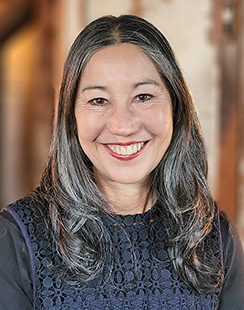Call out racism - no matter where it emerges

.
Once again, racism reared its ugly head, and I feel duty-bound to call it out.
As a half-Chinese New Zealander, I have felt the sting of racism since I started school and heard the chanted taunts from children as young as five or six. Chink, half-caste, Chinese Japanese you wear nappies etc.
Māori Party MP Tākuta Ferris’s recent outburst is equally ill-educated. He ranted online that it “blew his mind” that “Indians, Asians, Black and Pākehā, were campaigning to take a Māori seat from Māori.” He was referring to a multi-ethnic group of Labour party MPs and supporters, campaigning during the recent Tamaki Makaurau by-election, which the Māori Party won.
The Māori Party made it clear that Tākuta Ferris was speaking for himself and not the Māori Party and he was told to take down the post. The Māori Party also apologised for any hurt caused. Unfortunately, Tākuta Ferris doubled down on his attack in a late-night video a few days later.
Tākuta Ferris was off course in so many ways. “Asians,” which includes people from the Indian sub-continent, have their own history of subjugation to white supremacy and British colonial rule. Perhaps that’s why many feel aligned with Māori aspirations.
The first Chinese person to settle in New Zealand, Appo Hocton, arrived in 1842, just two years after the signing of the Treaty of Waitangi. More Chinese from south China’s Guangdong province arrived in the South Island goldfields from the 1860s onwards.
In 1865, the Otago Chamber of Commerce actually invited Chinese to come to the goldfields. Chinese came, because England had brought southern China to its knees in the two wars known as the Opium Wars. England then banned export trade from Canton (Guangzhou), crippling the economy.
People were starving, that’s why they took up the offer to come to Gum Sarn (New Gold Mountain). They loved their home. They had to leave behind wives and children, but they came here to seek gold so that they could send money home, in order for their families in China to survive. Those who made enough money on the goldfields eventually returned to China. Many did not make their fortune.
One such person was Joe Kum Yung. In 1905, at 68-years-old and crippled, he was shot and killed in Wellington, by a white supremacist, who had written a manifesto for a white New Zealand. At the time, the killer Lionel Terry’s views were mainstream. There was a White New Zealand League and a Poll Tax of 100 pounds that Chinese immigrants had to pay to enter New Zealand.
Tākuta Ferris might not know any of this because this history is not taught in our schools and as we know Māori history has barely been taught in our schools either. Our education system was so ignorant of Joe Kum Yung, that in 2020 it included a poem by Lionel Terry in a school exam, with no mention that he was a white supremacist murderer. It took student Cadence Cheung to call out the education authorities and point out that this was pretty rude.
People from the Indian sub-continent have also been in New Zealand since the 1800s. Edward Peter, known as ‘Black Peter’, arrived in 1853. Australian Gabriel Read was credited with finding gold at Tuapeka in Otago, but it is now recognised that Edward Peter told Read where to find it.
As for Tākuta Ferris’s rant that, “Indians, Asians, Black and Pākehā, were campaigning to take a Māori seat from Māori.” The seat was going to stay Māori, whether Labour or the Māori Party won the byelection.
According to Te Ao News on Whakaata Māori, if Peeni Henare had won the Tamaki Makaurau seat for Labour, he would have vacated his list seat in Parliament, as he would now be an electorate MP. That would have cleared the way for Georgie Dansey (Ngāti Tūwharetoa) to take Henare’s vacated list place in the house. One of her ancestors, Harry Dansey, was New Zealand’s second Race Relations Conciliator.
In his defeat speech on by-election night, Mr Henare said he was proud of all his volunteers who ran an inclusive campaign.
"Some might slander and some might denigrate them, but I want to be very clear. In this waka, you are all welcome - all shapes, all sizes, all races, all creeds," Mr Henare said.
If Asians, Pākehā and others want to help Māori to campaign in a Māori seat, surely that’s a good thing and the essence of the partnership that bound Pākehā and Māori through the Treaty of Waitangi.
If Asians and others want to support the goals of mana motuhake and tino-rangatiratanga then surely that support is welcome, especially at a time when it appears that all things Māori are under attack from the current government, and many gains made over the last fifty years are being eroded or erased.
I didn’t want to write this column, because it hurts to have to focus on racism. But I believe that racism has to be called out whenever it happens and whoever is the perpetrator. We can’t just look away or turn the other cheek because that silence lets racism fester. The more we learn to understand each other and our histories in Aotearoa, the more unified and stronger we will become.